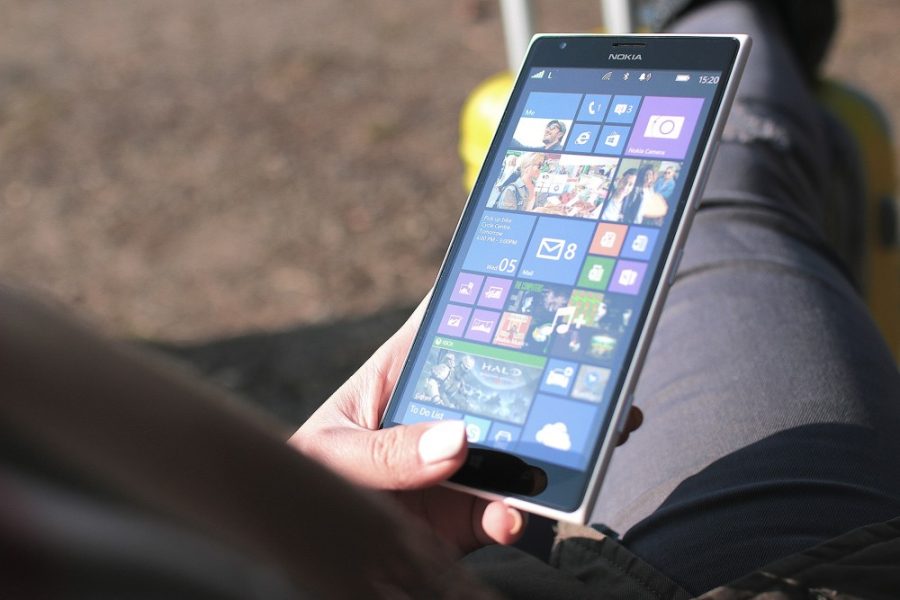Note: Super Cool News is a Daily Wildcat feature that shares the, yes, coolest news happening around town and around the country. Try not to take what its writers have to say too literally.
The year is 2040. Imagine a cold winter morning (hard to imagine in Tucson, I know). The smart watch around your wrist detects a dip in your REM sleep pattern, and gently buzzes to wake you up, while a signal is sent to the lights in your room to flash on and off. As you stir awake, stretch and put your feet on the ground, more signals are shot all over your house. Suddenly your house’s heater turns on, your smart coffee maker begins dripping and your smart toilet seat begins to warm up. A few minutes later, as you walk out into the kitchen, the morning news turns on automatically. Your dog’s smart feeder drops a cup of food into their bowl, much to their excitement.
You complete your morning routine, hop in your self-driving car, tap a button on your phone to lock your doors and windows and zip off to work.
RELATED: Super Cool News: People still read books
Exactly one week later, on another cold winter morning, something changes. It snowed heavily last night, and the power went out while you were sleeping. You wake up groggily, wondering why your watch isn’t buzzing, and your lights aren’t flashing. Something must be wrong. You walk out into the kitchen, and the house is freezing cold. The coffee didn’t start dripping, and your smart toilet seat is ice-colder than André 3000.
You find out how to switch your smart house into battery mode, and your connected objects spring back to life. However, because a storm hit your neighborhood last night, you realize your internet bill didn’t auto-pay during the outage. Late for work, you rush out the door.
As you stumble outside and into your self-driving car, angry and tired because you couldn’t fulfill your ritualistic coffee addiction, you realize another problem. Your car is no longer self-driving, because it can’t connect to the internet. You hop in the driver’s seat and turn it on yourself, before realizing, as a 23 year old, you never learned how to drive. You were born in 2017, and by 2033, at 16 years old, your parents decided the world was changed enough that you only needed a passenger’s license. Despite having no idea where you are in your neighborhood, because you never needed to, you decide to try to drive yourself to work. Six near-collisions and four red-light-runs later, you arrive at work, stressed, tired and surprisingly without pants.

Last week’s seamless smart-morning and today’s chaotic morning are both potentials of the emerging Internet of Things (IoT). The IoT is the futuristic interconnection of computers embedded in everyday devices. This may include watches, lights, thermostats, coffeemakers, toilets, televisions, dog bowls, doors, windows and cars. All of these objects might contain sensors, like a watch that detects your heart rate. These objects can send and receive data between one another, setting off a chain of events within your future smart house. They will also transmit data to the internet, where it is stored and analyzed for future use.
RELATED: Super Cool News: The Spring Fling financial guide
The IoT is not far off. Many everyday objects are already connected to each other and the internet. Eventually, technology companies would like to see most objects in your life interconnected. You could program your smart chair to yell at you when your posture is bad. It could even yell at others when it detects someone else’s butt in your seat. Your home security may be tied to an app on your smartphone. Your house’s doors and windows will be opened remotely with a tap on a screen. Cars connected to the IoT will be able to communicate with each other, allowing for instant traffic and risk assessment.
All of this connectivity poses many risks. Do you want your house’s doors remote operated, therefore prone to hacking? Do you want your many years of sleep and health data floating around the cloud, also available for retrieval by people other than yourself? Should all cars be self-driving and also subject to an instant remote takeover?

Some people will always prefer a mechanical lock-and-key home security. Others will never trust the operation of a motor vehicle to the internet. A few will prefer old fashioned toilets, which don’t speak to you, but only a few. The IoT may lead to efficient human productivity, but it may also result in a lack of autonomy. What happens when the power goes out, or when you forget to pay your internet bill? Is your whole day, week or month ruined because you never learned how to wake up, make coffee, feed your dog, flush the toilet and drive yourself to work, on your own? What will future students learn about, when they are told what time it is, rather than them telling the time? Should our brains eventually become some of the things connected to the internet? How far will the Internet of Things go, before we are things of the internet?
Follow Isaac Andrews on Twitter.









